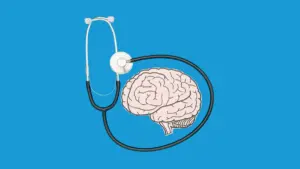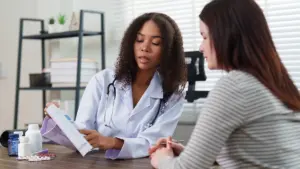Medication assisted treatment (MAT) is a helpful option if you’re working to recover from addiction, whether you’re dealing with alcohol or opioid use. Both OceanRock Health and South Coast Counseling offer MAT as part of their evidence-based programs—OceanRock Health provides outpatient and virtual care, while South Coast Counseling offers residential treatment.
In the following sections, you’ll learn about the different medications available, the benefits and program options of MAT, and how to find the care that fits your needs.

Introduction to Medication Assisted Treatment (MAT)
Medication Assisted Treatment (MAT) is a way to help people recover from addiction. It uses medication along with counseling or behavioral treatment (therapy) to treat substance use disorder (SUD). MAT is mainly used to treat addictions to opioids (like heroin or prescription painkillers) and alcohol, but it can also help with other substances.
The purpose of MAT is to help restore balance in your brain, especially in areas affected by addiction. When you have an addiction, your brain circuits are disrupted. This makes it hard for you to feel normal or in control.
MAT medications don’t give you a “high” when used as prescribed. Instead, they work by reducing cravings and withdrawal symptoms. MAT doesn’t just replace one drug with another; it helps your brain heal and function normally so you can get back to a more balanced state.
Types of Medications Used in MAT
Depending on what you’re struggling with, whether it’s alcohol or opioids, different addiction medications can help.
Medications That Help You Stop Drinking Alcohol
If you’re trying to stop drinking, there are a few medications that might be used as part of your MAT plan. These medicines help in different ways:
- Acamprosate: This helps you stay away from alcohol once you’ve already stopped drinking. It doesn’t treat withdrawal symptoms, but it helps keep your brain balanced so you don’t feel the urge to drink again. Usually, it starts around the fifth day after you stop drinking.
- Disulfiram: This medicine works by making you feel very sick if you drink alcohol while taking it. You might get nausea, headache, or flushing. It can be a strong reminder not to drink, especially if you’re already trying to stay sober.
- Naltrexone: This one blocks the good feelings you might get from drinking alcohol. When you don’t feel that “reward,” drinking becomes less tempting. It can help you break the habit and reduce how much you want to drink.
Medications That Help You Stop Using Opioids
There are three main medicines approved by the U.S. Food and Drug Administration (FDA) to treat opioid use disorder (OUD): buprenorphine, methadone, and naltrexone. All of them are safe and work well when used the right way.
- Buprenorphine: This medicine helps with withdrawal symptoms and cuts down your cravings. It doesn’t make you feel high, but it sticks to your brain’s opioid receptors to stop other opioids from affecting you. It helps your body adjust more safely.
- Methadone: This is a longer-acting medicine that helps with withdrawal and cravings. It can also block the effects of other opioids if you try to use them while on methadone. It’s often used in a clinical setting with close supervision.
- Naltrexone: Just like with alcohol use, naltrexone can be used for opioids too. It stops the high that opioids normally give you, so if you use while on this medication, you won’t get the same effect. It can help you feel more in control and reduce your cravings.
These medications work best when they’re combined with therapy and support. You still have to do the work, but MAT gives your brain and body the tools to help you move forward. It’s not a one-size-fits-all approach, and your doctor or counselor will help figure out which medicine might be best for you.
Benefits of Medication Assisted Treatment
Below are some of the benefits you can get from MAT:
1. Helps You Feel More in Control
Addiction can make you feel like you’ve lost control of your life. MAT helps bring back that control by reducing your cravings and easing withdrawal symptoms. This makes it easier for you to focus on recovery instead of constantly thinking about using.
2. Lowers the Risk of Relapse
When your cravings are strong, it’s hard to stay clean. MAT helps reduce those cravings, so you’re less likely to go back to using drugs or alcohol. That gives you more time to build healthy habits and stay on track.
3. Improves Your Mental and Physical Health
Using drugs or alcohol for a long time can harm your mind and body. MAT helps your brain function better and gives your body a chance to heal. You may sleep better, think more clearly, and feel more balanced emotionally.
4. Supports Long-Term Recovery
MAT gives you a strong foundation. With the right support, such as therapy, counseling, and support groups, MAT can be part of a long-term plan that helps you stay sober and live a healthier life.
5. Gives You a Better Quality of Life
When you take these medications as prescribed, they can help you keep a job, stay out of legal trouble, lower your risk of getting HIV or other health issues linked to drug use, and take part more fully in counseling and therapy.
MAT Program Structures and Options
When you’re ready to start MAT, there are different types of MAT programs to choose from. Check out the options below:
Inpatient vs. Outpatient MAT Programs
- Inpatient MAT means you stay at a treatment center full-time. You live there while getting care. This can be a good choice if you need more structure, have a severe addiction, or don’t have a safe or stable place to stay. Inpatient care gives you 24/7 support, which can help during early recovery.
- Outpatient MAT lets you live at home while going to treatment during the day or week. You may visit a clinic or a doctor’s office to get your medication, counseling, or therapy. This is a great option if you need to keep working, take care of family, or simply want more freedom while getting help.
Customized MAT Plans Just for You
Not every treatment plan is the same, and that’s a good thing! A good MAT program will work with you to create a plan that matches your situation, your goals, and your health.
For instance, the Arizona Health Care Cost Containment System (AHCCCS), which is the state’s Medicaid agency, helps people find the MAT support they need through different opioid use and treatment programs, such as:
- Opioid Treatment Programs (OTPs): These are certified clinics that provide both medication and counseling. They help you manage your recovery with trained professionals and support services.
- Office-Based Opioid Treatment (OBOT): This option lets you get care from a doctor in a regular medical office. It’s more private and may feel more comfortable. Your doctor can prescribe medication and help you connect to other services you may need, like therapy or social support.
No matter which type of program you choose, the goal is the same: to help you feel better, stay healthy, and support you on your journey to recovery. There are programs and people ready to help you every step of the way.
Eligibility and Access to MAT
You might be eligible for MAT if:
- You’re struggling with opioid or alcohol use and want to stop.
- You’ve tried quitting before but found it difficult due to cravings or withdrawal symptoms.
- You’re ready to commit to a treatment plan that includes medication and counseling.
A healthcare provider will assess your situation to determine if MAT is right for you. They’ll consider your medical history, substance use patterns, and any other health concerns.
How to Access MAT
Getting started with MAT involves a few steps:
- Talk to a Healthcare Provider: Reach out to a doctor, clinic, or treatment center that offers MAT. They can evaluate your needs and discuss treatment options.
- Find a Treatment Program: Depending on your location, there are different types of programs:.
- Check Insurance Coverage: Many insurance plans, including Medicaid, cover MAT services. It’s a good idea to contact your insurance provider to understand what’s covered.
- Start Your Treatment Plan: Once enrolled, you’ll receive medication and participate in counseling sessions. The combination helps address both the physical and emotional aspects of addiction.
Alternative and Complementary Treatment Options
MAT can be a powerful part of your recovery, but it’s not the only support available.
There are alternative and complementary treatments used in addition to or sometimes instead of traditional methods, depending on what works best for you.
Here are a few options that may help:
- Counseling and Talk Therapy: Talking to a therapist can help you understand your triggers, manage stress, and work through emotions. This is often part of MA, too, but it can also be helpful on its own.
- Peer Support Groups: Groups like AA (Alcoholics Anonymous), NA (Narcotics Anonymous), or SMART Recovery let you connect with others who are also in recovery. You don’t have to go through this alone.
- Mindfulness and Meditation: Practicing deep breathing, meditation, or mindfulness can help calm your mind and reduce anxiety or cravings.
- Exercise and Nutrition: Staying active and eating healthy foods can make a big difference in how you feel, both mentally and physically.
- Holistic Treatments: Some people try yoga, acupuncture, or art therapy to help with healing. These may not replace medication, but they can help support your overall well-being.
At South Coast Counseling, we understand that recovery is not one-size-fits-all. We focus on medication assisted treatment while also supporting your need for a full range of care options. Whether you want help with MAT, therapy, or alternative approaches, we’re here to guide you through your recovery, step by step.








